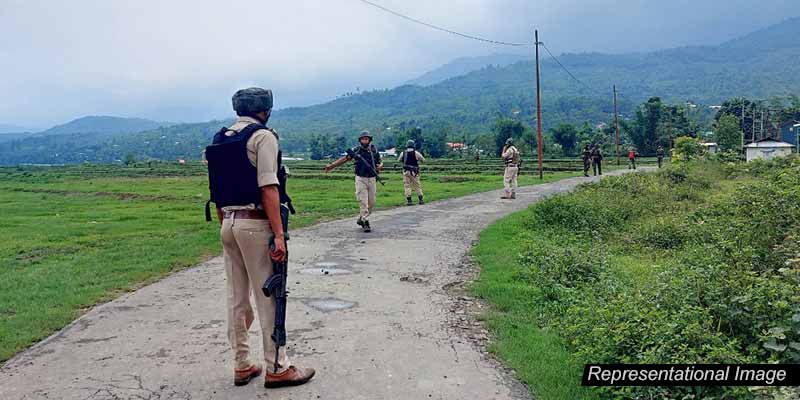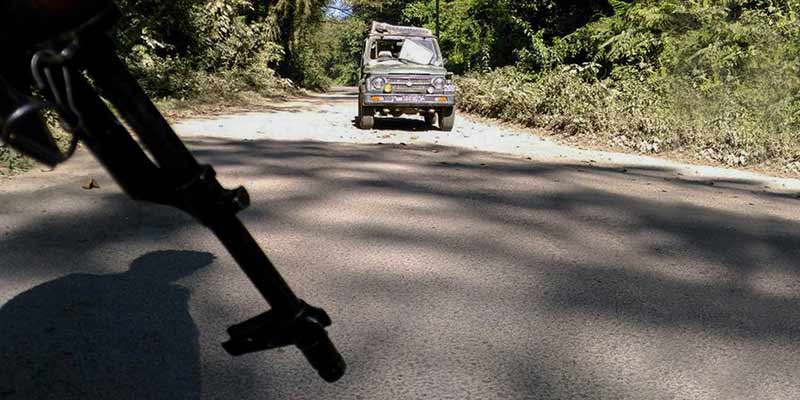- India
- Sep 26
- Kevin Savio Antony
What is AFSPA?
The ongoing ethnic violence in Manipur, especially between the Kuki-Zo and Meitei communities, has prompted the Centre and the Manipur government to reconsider the application of the Armed Forces Special Powers Act (AFSPA). The periodic extension of AFSPA in the state's hill areas is due to expire on September 30, and the government is weighing whether more areas should come under the Act.
Current status of AFSPA in Manipur:
• The AFSPA remains in place in all hill districts, while it has been progressively withdrawn from valley districts since 2022 due to improved security.
• In the Imphal municipality area, AFSPA was withdrawn back in 2004.
• A senior Union government official has pointed out the rise in the number of armed men and incidents like extortion and abductions as major concerns.
• The absence of AFSPA in valley districts makes it difficult for security forces to operate effectively, while these areas remain affected by armed groups.
Ethnic Violence and Insurgent Groups:
• Since May 2023, over 237 people have been killed in ethnic clashes. Insurgent groups, especially from Myanmar, have taken advantage of the unrest to re-establish their presence.
• Thousands of weapons have been looted from police armories, with only a portion recovered, suggesting an influx of sophisticated weapons into the region.
What is AFSPA?
• The Armed Forces Special Powers Act (AFSPA), 1958 was introduced to tackle increasing violence in certain regions, particularly in the northeastern states, where state governments were struggling to maintain control.
• The Act provides the armed forces with wide-ranging powers in designated “disturbed areas” to aid civil authorities in maintaining law and order.
Key Provisions of AFSPA:
The armed forces and Central Armed Police Forces (CAPF) deployed in “disturbed areas” are empowered to:
• Use force, including lethal force, against individuals acting in contravention of the law.
• Arrest individuals without a warrant.
• Conduct searches of premises without a warrant. These forces are also protected from prosecution for actions taken under AFSPA without the prior sanction of the central government.
Jurisdiction: Both the state and Union governments can issue notifications declaring certain areas as “disturbed”, granting the armed forces the authority under AFSPA.
• For Nagaland and Arunachal Pradesh, the Union Ministry of Home Affairs (MHA) issues periodic notifications.
Disturbed Areas under AFSPA:
Defined under Section 3 of the Act, a “disturbed area” is where the use of armed forces is deemed necessary to support civil authorities in maintaining law and order.
Declaration of Disturbed Areas:
• An area can be declared disturbed due to conflicts or disputes between various religious, racial, linguistic, regional, or caste-based communities.
• The central government, Governor of the state, or the administrator of the Union Territory can declare the whole or part of a state or union territory as a disturbed area.
• Once declared, the region is maintained as disturbed for at least three months under The Disturbed Areas (Special Courts) Act, 1976.
AFSPA in Practice:
• AFSPA has been in force primarily in the northeastern states of India, such as Nagaland, Arunachal Pradesh, and Manipur.
• The Act was also applied in Jammu & Kashmir until its partial revocation in certain areas.
• The scope and duration of AFSPA can vary depending on the region’s security situation.
• State governments can make recommendations on whether the Act is necessary, but the final decision lies with the central government.
Arguments in favour of repealing AFSPA
i) Colonial-Era Law: AFSPA is often compared to the Rowlatt Act of 1919, a draconian colonial law that allowed arrest without trial based on mere suspicion. Critics argue that AFSPA reflects similar colonial mindsets, prioritising control over due process and human rights.
ii) Violation of Fundamental Rights: The law is seen as violating multiple Fundamental Rights mentioned in the Indian Constitution:
• Article 14 (Right to Equality): AFSPA provides arbitrary powers to armed forces, leading to discrimination and inequality in the enforcement of law.
• Article 19 (Freedom of Speech and Expression): The arbitrary powers of search, arrest, and detention limit citizens’ ability to freely express their views, especially in conflict areas.
• Article 21 (Right to Life and Personal Liberty): AFSPA allows the armed forces to take life without judicial oversight.
• Article 22 (Protection against Arrest and Detention): The Act enables arrest without a warrant, bypassing safeguards for citizens’ liberty.
• Article 25 (Freedom of Religion): The powers under AFSPA can lead to targeting specific communities, especially those engaged in cultural and religious practices that may be viewed with suspicion by authorities.
iii) Violation of International Law:
AFSPA is seen as violating international legal standards, particularly:
• The Universal Declaration of Human Rights (UDHR), which guarantees basic human rights and dignity.
• The International Covenant on Civil and Political Rights (ICCPR), which India has ratified and which obliges the country to protect civil and political rights, including the right to life, liberty, and freedom from arbitrary arrest.
• The Convention against Torture, as the immunity provided by AFSPA can lead to allegations of torture and mistreatment without accountability.
iv) Lack of Accountability: AFSPA grants sweeping powers to the armed forces but includes immunity from prosecution without the approval of the central government. This lack of oversight is seen as fostering impunity, where security forces are not held accountable for alleged human rights violations, including extrajudicial killings and torture.
v) Militarisation of Governance: Critics argue that AFSPA contributes to the militarisation of governance, where military authority takes precedence over civilian administration in conflict zones. This undermines democratic principles and weakens the role of elected representatives and civil society in decision-making processes.
vi) Centre-State Conflicts: Law and order is a State subject under the Indian Constitution, and states are typically better positioned to assess and manage the security situation on the ground. AFSPA undermines states’ autonomy by granting the central government and military forces overriding authority, even in times when there is relative peace, creating friction between the Centre and the states.
Arguments Against Repealing AFSPA
i) Safeguarding National Borders: AFSPA has enabled military forces to secure national borders, especially in sensitive regions like the northeast and Jammu & Kashmir, which are prone to infiltration and insurgency. The law empowers the military to act swiftly in hostile environments, protecting India's territorial integrity.
ii) Constitutional Validity: The Supreme Court of India upheld the constitutionality of AFSPA in the landmark Naga People’s Movement of Human Rights vs Union of India (1997) case.
The court laid down guidelines to prevent abuse, such as:
• Consultation with state governments before declaring an area as “disturbed”.
• Periodic review of the disturbed area status to ensure that AFSPA is applied only when absolutely necessary.
iii) Effective Counter-Insurgency: AFSPA is viewed as crucial for combating insurgent groups, especially in conflict-prone areas like Kashmir and the northeastern states. The presence of well-armed militant organisations in these regions poses significant challenges to the state's law and order apparatus.
• AFSPA allows for the deployment of military forces in support of civilian authorities in such volatile situations.
iv) National Security Imperative: AFSPA ensures a coordinated and comprehensive response to terrorism and insurgency, which individual states might lack the capacity to handle independently.
• The law gives the armed forces the authority to neutralise threats before they escalate into larger conflicts, thereby maintaining internal security.
v) Measures to Curb Misuse: Legal safeguards have been introduced to prevent the misuse of AFSPA. In the Extra Judicial Execution Victim Families vs Union of India (2016) case, the Supreme Court clarified that AFSPA does not grant invincible immunity to armed forces personnel.
• Soldiers involved in illegal actions can be prosecuted, providing a balance between national security and accountability.
(The author is a trainer for Civil Services aspirants.)


